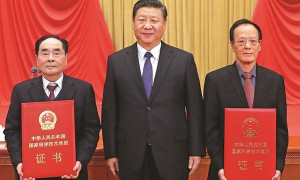Earlier this summer, a piloted fixed-wing aircraft called Solar Impulse completed the first-ever circumnavigation of the Earth using nothing but the power of the sun.
The company behind it, ABB, is the world's largest builder of electricity grids, making most of its estimated $48.1 billion fortune from power and automation technology.
Shortly after its aircraft triumphantly touched down in Abu Dhabi on July 26, I happened upon a PR piece, attributed to ABB's President and CEO Ulrich Spiesshofer.
What struck me most about Spiesshofer's spiel was a paragraph describing the founding of ABB, 125 years ago, "by two enterprising entrepreneurs" who wanted "to explore the potential of a promising new technology called electricity".
Wow, I thought. How far we have come!
In a little over a century mankind has transformed the world, from one lit by candles and oil lamps where the fastest forms of travel were horseback and steamship, to the globalized, homogenized sphere of today, which would be unrecognizable to all who came before.
And all of it started with electricity.
But about 85 percent of the world's energy - by which, of course, we largely mean electricity - comes from sources that will eventually be depleted.
That's not to mention the impact that our modern way of living has on the world's reserves of rare earth elements - those magic metals that are used in everything from smartphones to MRI machines, and even the batteries that powered Solar Impulse on its groundbreaking trip around the Earth.
We live on a finite planet, filled with a finite amount of things. No well is bottomless and all wells will eventually run dry - so what happens when they do?
The rebuttal I am often given is that our planet's resources will last for many decades to come - and will probably far outlast anyone alive today.
Yet what happens once the barrel is empty? Scraped clean by an ever more avaricious species of upright primates that, not so long ago on the geological time scale, knew nothing of electricity, metalwork or any of the apparent magic that can be conjured by exploiting the elements found within the Earth's crust?
Perhaps human ingenuity will ride to the rescue - Spiesshofer himself argues that "technology is not to be feared or resisted" and the success of Solar Impulse proves that "we can run the world without consuming the earth".
Or perhaps in another 125 years, once the oil has dried up and the last of those elusive elements have been scoured from under our feet, a lone survivor will stand and stare across the desolation, wondering where it all went so wrong.
And then he'll look up, and he'll see through the haze a shadow passing across the face of the sun, as an unmanned descendant of that aircraft once known as Solar Impulse completes another pointless circumnavigation of the Earth, for the 1,000th time.
Perhaps.







